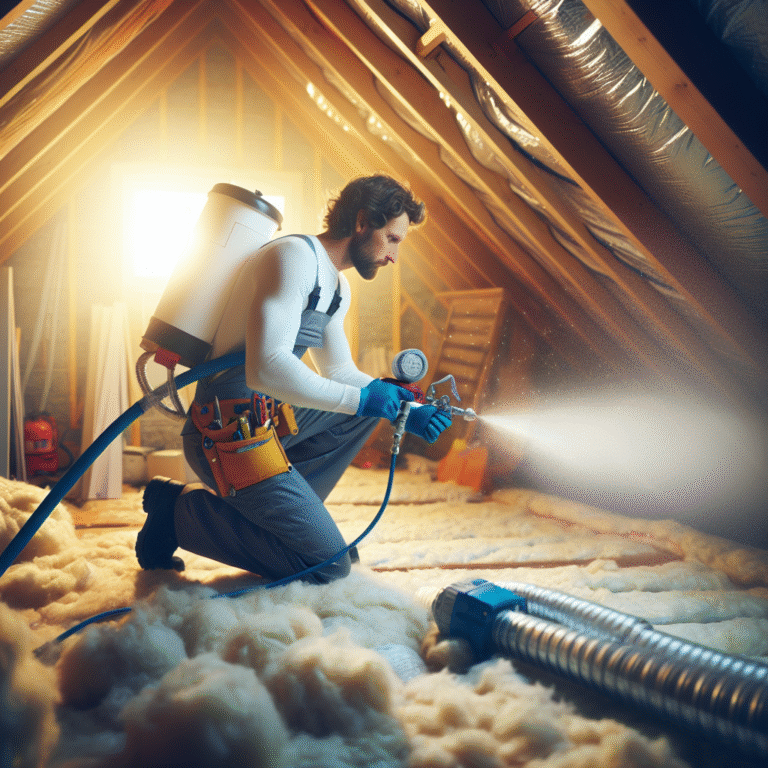Maximize Energy Savings with Attic Insulation in Houston: 9 Tips for Efficiency
Introduction
Imagine stepping into a comfortably cool home on a scorching Houston afternoon or waking up warm on a chilly winter morning—without watching your energy bills skyrocket. Attic insulation in Houston is the unsung hero that makes this possible. By creating an effective thermal barrier between your living space and the outside elements, proper attic insulation reduces heat transfer, lowers utility costs, and boosts indoor comfort year-round. In this article, we’ll explore why attic insulation in Houston matters, how it enhances your home’s efficiency, and share nine practical tips to maximize energy savings.
H2: Benefits of Attic Insulation in Houston Homes
• Dramatically Lower Energy Bills
When your attic is well insulated, your HVAC system doesn’t have to work overtime to maintain set temperatures. By minimizing heat gain in summer and heat loss in winter, attic insulation in Houston can reduce heating and cooling costs by up to 20%.
• Enhanced Home Comfort
No more sweltering upstairs bedrooms or chilly hallways. Consistent attic insulation helps eliminate hot and cold spots, ensuring every room feels cozy.
• Increased Property Value
Energy efficiency is a top selling point. Homes equipped with quality attic insulation in Houston attract eco-conscious buyers and often command higher resale prices.
• Better Indoor Air Quality
Sealing air leaks in the attic keeps out dust, pollen, and pollutants. Improved insulation helps maintain balanced humidity levels, reducing mold risk and creating a healthier living environment.
• Extended HVAC Lifespan
Less strain on your furnace and air conditioner means fewer breakdowns, lower maintenance costs, and a longer service life.
• Reduced Carbon Footprint
By using less electricity for heating and cooling, you shrink your household’s greenhouse gas emissions—doing your part for a greener Houston.
H2: How Attic Insulation in Houston Improves Energy Efficiency
Heat always moves from warmer to cooler areas. In summer, blistering heat penetrates poorly insulated attics and radiates down into living spaces. In winter, precious warm air escapes through gaps and insufficient insulation. Proper attic insulation in Houston acts as a barrier:
• Thermal Resistance (R-Value)
A higher R-value material slows heat transfer more effectively. Houston homes typically benefit from R-38 to R-60 in the attic.
• Air Sealing
Combining insulation with caulking or foam sealants around pipes, ducts, and recessed lighting prevents drafts and energy loss.
• Moisture Control
Insulation with moisture-resistant properties prevents attic humidity buildup, protecting both the insulation and the roof structure from mold damage.
• Balanced Ventilation
Strategic placement of soffit and ridge vents maintains airflow, expelling excess heat in summer and moisture in winter, preserving insulation performance.
H2: 9 Tips to Maximize Energy Savings with Attic Insulation in Houston
1. Schedule a Professional Energy Audit
A certified energy auditor can identify insulation gaps, air leaks, and ventilation problems to create a targeted upgrade plan.
2. Choose the Right Insulation Type
Options include fiberglass batts, blown-in cellulose, and spray foam. Fiberglass is cost-effective; cellulose offers eco-friendly credentials; spray foam seals cracks and provides the highest R-value per inch.
3. Prioritize Air Sealing Before Insulating
Seal attic bypasses—around chimneys, plumbing vents, and attic hatches—so insulation can perform at peak efficiency.
4. Maintain Proper Insulation Depth
Ensure your attic meets the recommended R-value for Houston’s climate. Use depth markers to verify uniform coverage before adding new material.
5. Protect Against Moisture
Install a vapor barrier under the insulation if moisture is a concern. Combine with adequate roof ventilation to keep the attic dry.
6. Insulate Ductwork and HVAC Components
Uninsulated ducts in an unconditioned attic can lose up to 30% of conditioned air. Wrap ducts and insulate around HVAC units for added savings.
7. Upgrade Attic Hatch and Access Panels
An insulated and gasketed attic door prevents significant heat transfer through this common weak spot.
8. Add a Radiant Barrier
Reflective radiant barriers on the underside of the roof deck can deflect up to 97% of radiant heat, reducing attic temperatures and cooling loads.
9. Perform Annual Inspections and Maintenance
Check insulation for signs of settling, moisture damage, or pest intrusion. Top up or replace affected areas to maintain consistent performance.
H2: Q&A
1. How do I know if my attic insulation in Houston needs upgrading?
Look for uneven indoor temperatures, high energy bills compared to neighbors, or visible gaps and compressed areas in existing insulation. An energy audit can confirm deficiencies.
2. Which R-value is best for Houston attics?
Aim for an R-value between R-38 and R-60. Climate, roof pitch, and existing insulation levels determine the exact recommendation.
3. Can I install attic insulation myself?
Simple fiberglass batt installation is DIY-friendly, but proper air sealing, moisture control, and ventilation balancing often require professional expertise for optimal results.
Conclusion
Maximizing energy savings with attic insulation in Houston is more than a home improvement—it’s a long-term investment in comfort, cost reduction, and environmental responsibility. By understanding the benefits, choosing the right materials, and following best practices, you can transform your attic into a powerful shield against Houston’s heat and humidity. Ready to take the next step? Visit texasinsulationsolution.com to schedule a consultation and start enjoying lower energy bills, enhanced comfort, and a greener home today.




